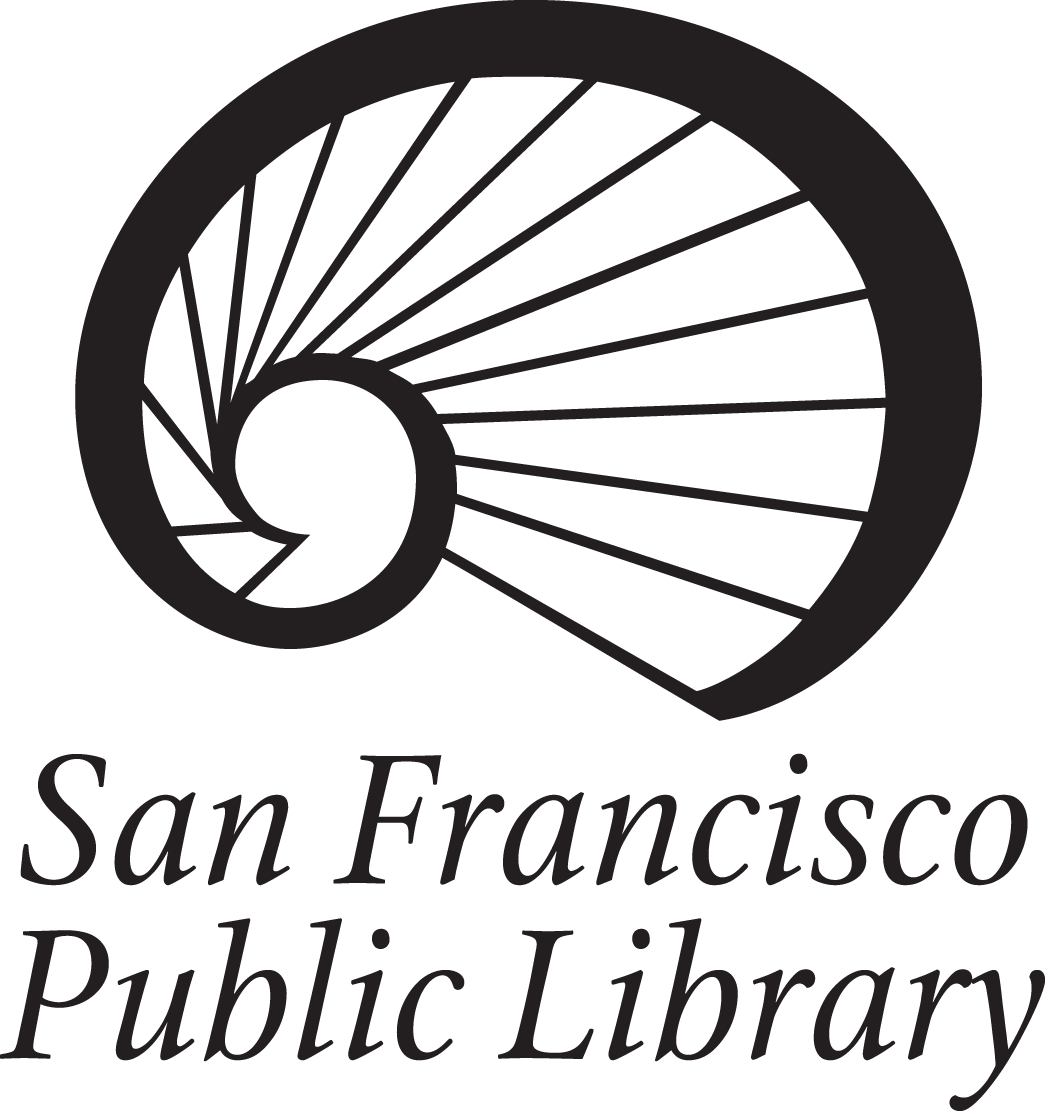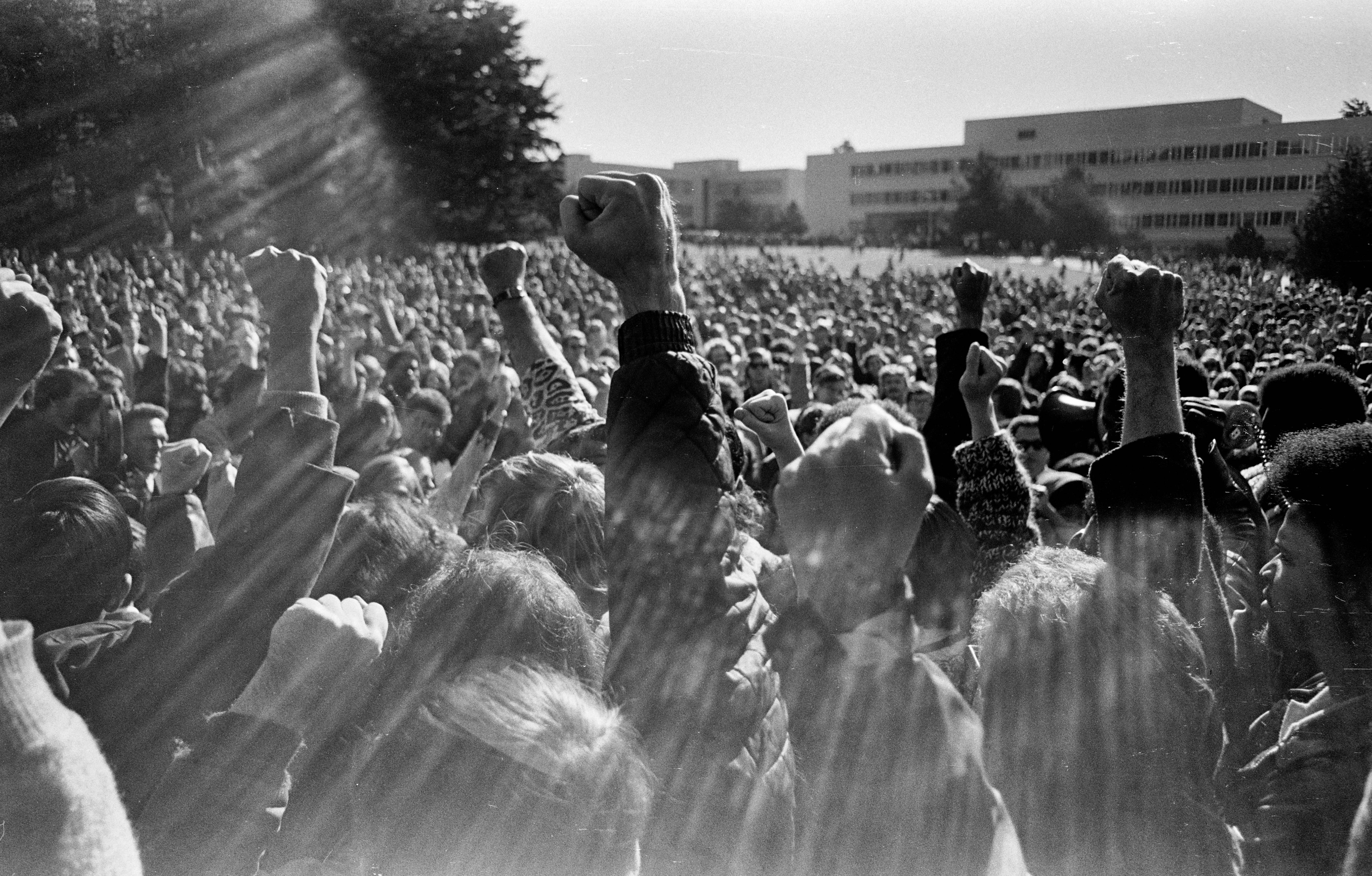Third World Liberation Front for the Future: Revisiting Student Activism in the ‘60s Bay Area [1]
Third World Liberation Front for the Future: Revisiting Student Activism in the ‘60s Bay Area
Panel Discussion
Thursday, October 24, 2024 | 6:00 p.m. (Doors at 5:30 p.m.)
San Francisco Public Library, Koret Auditorium, 100 Larkin St, San Francisco, CA 94102
Free and open to the public
Join the San Francisco Arts Commission (SFAC) and the San Francisco Public Library (SFPL) for a panel discussion organized and moderated by 2023 artist-in-residence, writer, and filmmaker Celeste Chan. Third World Liberation Front for the Future explores the history of Bay Area student-led movements of the late 1960s.
In 2023, Chan was one of four artists-in-residence selected to participate in the San Francisco Arts Commission's Artist-in-Residence program at the San Francisco Public Library. Launched in 2015, this program aims to foster partnerships with City departments, enabling artists to contribute to civic dialogue. During her ten-week residency at SFPL, Chan researched student activism in the ‘60s Bay Area and specifically the Third World Liberation Front (TWLF). Chan reviewed a mixture of primary and secondary sources, ranging from online photos and videos to in-person archival flyers, posters, pamphlets, newspaper clippings, and individual writings. She notes, “As a student movement, they (TWLF) built a coalition between communities of color, ran the nation’s longest student strike (five months) and created the discipline of Ethnic Studies. We can use TWLF’s lessons for the future, highlighting greater solidarity among activists of color today.”
This program shines a light on TWLF’s tactics, conversations, and conflicts and also what their legacy looks like today and for the future. Panelists include original student strikers and subject matter experts Laureen Chew, Dr. James Garrett, Dr. Ramona Tascoe, and Ray Tompkins. Chan will open the program with new writing and research from the SFPL History Center and the SFSU Library Archives alongside archival images and media clips from the student strike archives.
About the Artist
Celeste Chan is a writer, filmmaker, and teaching artist, schooled by Do-It-Yourself culture and immigrant parents from Malaysia and the Bronx, NY. She creates, collaborates, and curates to amplify voices within marginalized communities. For ten years, she co-directed Queer Rebels, a queer and trans people of color arts project. Chan has received residencies and fellowships from Hedgebrook, Hugo House, Lambda Literary, Mesa Refuge, Ragdale, SAFEHouse, Soaring Gardens, and VONA. Her writing can be found in several journals, including Ada, Alta, AWAY, Citron Review, cream city review’s genrequeer folio, Feminist Wire, Hyphen, Mixed Race/Queer and Feminist, The Seventh Wave, and The Rumpus. Chan is currently researching and writing two books: one about queer lineages, and the other about how her father survived the WWII Japanese occupation of Malaya. www.celestechan.com [2]
about the panelists
Laureen Chew was born in San Francisco to a Chinese American father and a Chinese immigrant mother. She was raised in San Francisco’s Chinatown and her k-12 education consisted of public and Catholic schooling. During her college years, Chew volunteered and worked short-term jobs to help immigrant students, pre-delinquent teenage girls and at-risk youth in SF’s Chinatown. At SF State, she was arrested during the TWLF student strike and spent twenty-one days in jail for her support in establishing the College of Ethnic Studies in 1968.
Dr. James Garrett has been involved in struggles for the human rights and self-determination of African peoples and all humanity for more than 50 years. As a member of both SNCC and CORE, he was an early activist in the civil rights struggles of the 1960s. A co-founder of the modern Black Student Union Movement and Black/Ethnic Studies Programs and the Modern Black Arts Movement, he has taught History and Pan African Philosophy at Howard and Temple Universities in the US, the University of Tanzania at Dar es Salaam, and Ife, in Nigeria. Dr. Garrett has published numerous essays, speeches and interviews and has presented more than 100 scholarly presentations at conferences and commissions.
Dr. Ramona Tascoe is a medical director focusing on young adult substance use and treatment of addiction disorders. After her time at UCSF she earned a master of public administration degree from the University of San Francisco and a master of divinity degree from Berkeley’s Graduate Theological Union. She has also put her unique mix of skills to work on behalf of communities around the world, leading medical missions to 10 different countries. Throughout her career, Dr. Tascoe has unapologetically fought for equity in higher education. This includes as an undergraduate student playing a key role in the 1968 historic student strike at San Francisco State University leading to the creation of the College of Ethnic Studies and the courage and integrity to stand up to gender discrimination despite the threat of retaliation and the loss of a career in the field during her surgery residency. As she says, she declared “not me” before there was a “me too.”
Raymond Tompkins's journey in Environmental Chemistry was shaped in his freshman year at San Francisco State College under the mentorship of Dr. Brian Ramsey, the head of the Graduate Division of Chemistry. His first project, a chemical analysis of cigarette smoke involving scrutinizing 62 chemical compounds, began his significant contributions to the field. Dr. Ramsey hired Raymond Tompkins as his Research Assistant and Teaching Assistant in his sophomore year. He participated in the development of a chemistry course for non-chem. majors titled "Chemistry in the Human Environment." He hasn’t stopped working to increase the understanding of environmental justice in the United States and worldwide. During his junior year, Raymond Tompkins took on the role of chairman of the Black Student Union at San Francisco State College and Vice President of the Associated Students of San Francisco State College. One of his most significant achievements during his term was establishing the first Childcare Center in the California State College system. In Mr. Tompkins's senior year, he was appointed to a blue-ribbon panel of the California Atty. Gen. Younger to make recommendations to the state assembly in the areas of standardization of police training, in addition to the establishment of an Affirmative Action Program for women and minorities to be included in the local police agencies.
Program Partner

